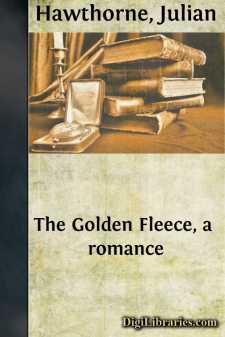Categories
- Antiques & Collectibles 13
- Architecture 36
- Art 48
- Bibles 22
- Biography & Autobiography 816
- Body, Mind & Spirit 145
- Business & Economics 28
- Children's Books 17
- Children's Fiction 14
- Computers 4
- Cooking 94
- Crafts & Hobbies 4
- Drama 346
- Education 58
- Family & Relationships 59
- Fiction 11834
- Foreign Language Study 3
- Games 19
- Gardening 17
- Health & Fitness 34
- History 1378
- House & Home 1
- Humor 147
- Juvenile Fiction 1873
- Juvenile Nonfiction 202
- Language Arts & Disciplines 89
- Law 16
- Literary Collections 686
- Literary Criticism 179
- Mathematics 13
- Medical 41
- Music 40
- Nature 179
- Non-Classifiable 1768
- Performing Arts 7
- Periodicals 1453
- Philosophy 66
- Photography 2
- Poetry 897
- Political Science 203
- Psychology 45
- Reference 154
- Religion 516
- Science 126
- Self-Help 85
- Social Science 82
- Sports & Recreation 34
- Study Aids 3
- Technology & Engineering 59
- Transportation 23
- Travel 463
- True Crime 29
Our website is made possible by displaying online advertisements to our visitors.
Please consider supporting us by disabling your ad blocker.
Yellow-Cap and Other Fairy-Stories For Children
by: Julian Hawthorne
Description:
Excerpt
CHAPTER I.
AN APPANAGE OF ROYALTY.
A good many years ago—before Julius Cæsar landed at Dover, in fact, and while the architect's plans for Stonehenge were still under consideration—England was inhabited by a civilised and prosperous people, who did not care about travelling, and who were renowned for their affability to strangers. The climate was warm and equable; there were no fogs, no smoke, no railways, and no politics. The Government was an absolute monarchy; one king, who was by birth and descent an Englishman, lived in London all the year round; and as for London, it was the cleanest, airiest, and most beautiful city in the whole world.
A few miles outside of the city walls lay a small village called Honeymead. It had some fifteen or twenty thatched cottages, each with its vegetable garden and its beehives, its hencoop and its cowshed. Around this village fertile meadows spread down to the river banks, bringing forth plenteous crops for the support of the honest and thrifty husbandmen who tilled them. There was only one public-house in the place, and the only drink to be had there was milk. A case of drunkenness was, consequently, seldom heard of; though, on the other hand, women, girls, and even small children might be seen lingering about the place as well as men.
This public-house was called the Brindled Cow, and it was kept by a young woman whose name was Rosamund. She was the prettiest maiden in the village, as well as the most good-natured and the thriftiest; though she had a keen tongue of her own when occasion demanded. As might be supposed, all the young men in the neighbourhood were anxious to marry her; but she gave them little or no encouragement. She used to tell them that she was well able to take care of herself, so what good would a husband be to her? She didn't want to support him, and she didn't need his support. It was better as it was. As for falling in love, that was a thing she couldn't pretend to understand; but her maiden aunt had once told her that it was more bother than it was worth, and she thought it very likely. Moreover, if by any accident she should one day happen to fall in love, she would take great care that it should not be suspected, because the man she loved would then become so puffed up with conceit there'd be no bearing him!
Such was Rosamund's declared opinion upon matrimony; and it caused gloom to dwell in the heart of many a love-sick swain. But (what was strange) the more love-sick they grew the fatter and rosier they became. The reason probably was that they were for ever going to the Brindled Cow under pretence of being thirsty—but in reality to feast their eyes on Rosamund's lovely face; and since, thirsty or not, she insisted upon their drinking, as long as they stayed, at the rate of a pint of rich unskimmed milk every ten minutes, you will easily understand that it soon became possible to measure the ardour of their affection in pounds avoirdupois. So that by-and-by, when the elders of the village would see their sons waxing great of girth and blowzy of visage, they would shake their heads and murmur sadly—
'Ah!...











